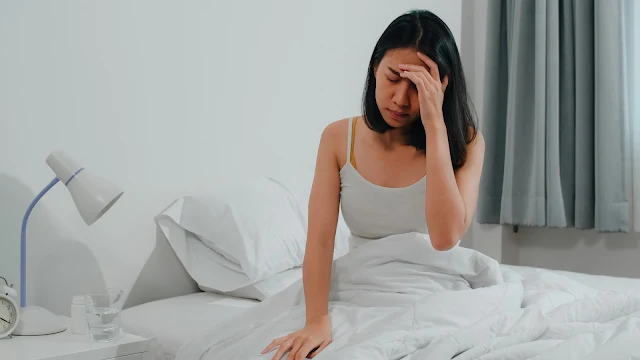Anxiety is a common experience that can range from mild unease to overwhelming fear. While it's natural to feel anxious at times, chronic anxiety can be detrimental to our mental and physical well-being. Fortunately, there are quick and effective techniques that can help reduce anxiety immediately, providing relief and promoting a sense of calm. In this guide, we'll explore these techniques in detail, empowering you to manage anxiety whenever it arises.
1. Deep Breathing Exercises
One of the simplest and most effective ways to reduce anxiety is through deep breathing exercises. Start by finding a comfortable seated position or lying down. Close your eyes and take a deep breath in through your nose, allowing your abdomen to expand as you inhale. Hold the breath for a few seconds, then exhale slowly through your mouth, letting go of any tension or stress. Repeat this process several times, focusing on the sensation of your breath entering and leaving your body. Deep breathing helps activate the body's relaxation response, calming the nervous system and reducing anxiety levels.
2. Mindfulness Meditation
Mindfulness meditation involves bringing your attention to the present moment without judgment. Find a quiet space where you won't be disturbed and sit or lie down comfortably. Close your eyes and focus on your breath, noticing the sensations of each inhale and exhale. As thoughts, emotions, or sensations arise, simply acknowledge them without getting caught up in them, gently returning your focus to your breath. Regular practice of mindfulness meditation can help reduce anxiety by promoting a sense of awareness and acceptance of the present moment.
3. Progressive Muscle Relaxation
Progressive muscle relaxation is a technique that involves tensing and then relaxing different muscle groups in your body. Start by tensing the muscles in your feet and toes for a few seconds, then release and let them relax completely. Move upward, tensing and relaxing each muscle group, such as your calves, thighs, abdomen, shoulders, and so on. Pay attention to the contrast between tension and relaxation in each muscle group. This practice helps release physical tension and can alleviate the symptoms of anxiety.
4. Visualization and Guided Imagery
Visualization and guided imagery involve creating mental images or scenes that evoke feelings of calmness and relaxation. Close your eyes and imagine yourself in a peaceful and serene place, such as a beach, forest, or garden. Engage all your senses by visualizing the sights, sounds, smells, and textures of this imaginary environment. You can also use guided imagery recordings or apps that provide audio instructions for relaxation. Visualization techniques can help distract from anxious thoughts and promote a sense of tranquility.
5. Physical Activity and Exercise
Regular physical activity and exercise are powerful tools for reducing anxiety and improving overall well-being. Engage in activities that you enjoy, such as walking, jogging, yoga, or dancing. Exercise releases endorphins, neurotransmitters that promote feelings of happiness and relaxation. Aim for at least 30 minutes of moderate exercise most days of the week to experience the mental health benefits. Even short bursts of physical activity, such as taking a brisk walk or doing a few minutes of stretching, can help alleviate anxiety symptoms immediately.
6. Grounding Techniques
Grounding techniques are helpful for bringing your focus back to the present moment and reducing anxiety. One technique is 5-4-3-2-1, where you name five things you can see, four things you can touch, three things you can hear, two things you can smell, and one thing you can taste. This sensory exercise helps shift your attention away from anxious thoughts and into your immediate surroundings. Another grounding technique involves deep pressure stimulation, such as hugging yourself tightly or using a weighted blanket, which can promote a sense of safety and calmness.
Conclusion:
Reducing anxiety immediately is possible with the right techniques and practices. By incorporating deep breathing exercises, mindfulness meditation, progressive muscle relaxation, visualization, physical activity, and grounding techniques into your daily routine, you can effectively manage anxiety and cultivate a greater sense of well-being. Experiment with different techniques to find what works best for you, and remember that consistency and practice are key to experiencing long-term benefits.

Comments
Post a Comment